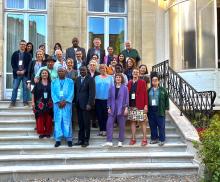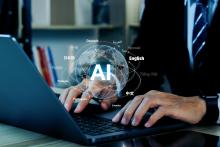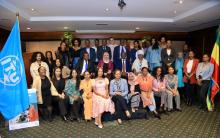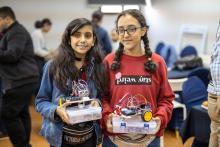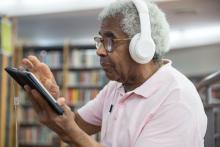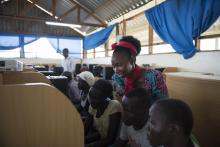Safeguarding Human Rights and Information Integrity in the Age of Generative AI
Together, we can ensure that generative AI is used appropriately, and that its benefits are achieved without endangering information integrity and human rights.
Cultural Diversity in the Digital Age: A Pillar for Sustainable Development
Two important issues affecting the protection and promotion of cultural diversity deserve our attention: the question of discoverability of local and national content, and the impact of generative artificial intelligence (AI).
Digital Innovation—Key to Unlocking Sustainable Development
Digital tools have the potential to accelerate human progress, but those who are not online are most at risk of being left behind.
Valuing Data Enrichment Workers: The Case for a Human-Centric Approach to AI Development
Through action or inaction, it is people, not machines, who will determine what tomorrow’s society will look like.
Technology and Gender Equality—Bringing Women and Girls to the Centre of Innovation
Promoting gender equality in the realm of technology is indeed a matter of rights, but it goes beyond questions of justice. Women’s equal leadership in tech spaces will ensure that the technology of our future fosters sustainability and inclusion, not breakdown and division.
Future-Proof Skills Can Help Balance Individual and Societal Progress
Conceptual and strategic thinking, creativity, problem-solving, empathy, optimism, ethics, emotional intelligence and judgment are the future-proof skills and attributes that machines will not be able to replicate with the same standards and agility as qualified human beings.
Digital Technologies Can Help Older Persons Maintain Healthy, Productive Lives
Work, education, leisure, socializing and so many other activities take place in the digital space—wouldn’t we want to continue accessing all of the benefits of such technology as we get older?
The Case for Connectivity, the New Human Right
This year’s Human Rights Day theme focuses on the need and opportunity to build back better in the wake of the pandemic by ensuring that human rights are central to recovery efforts. And make no mistake about it, digital connectivity should be a human right.
Media and Information Literacy in an Age of Uncertainty
In order to protect democracy, the transition to a digital society and economy must be accompanied by a media and information literacy revolution.
The Digital Mask
Our global society has evolved to become increasingly dependent on digital technology. When the technology fails, this reliance can lead to a range of cascading negative effects.




